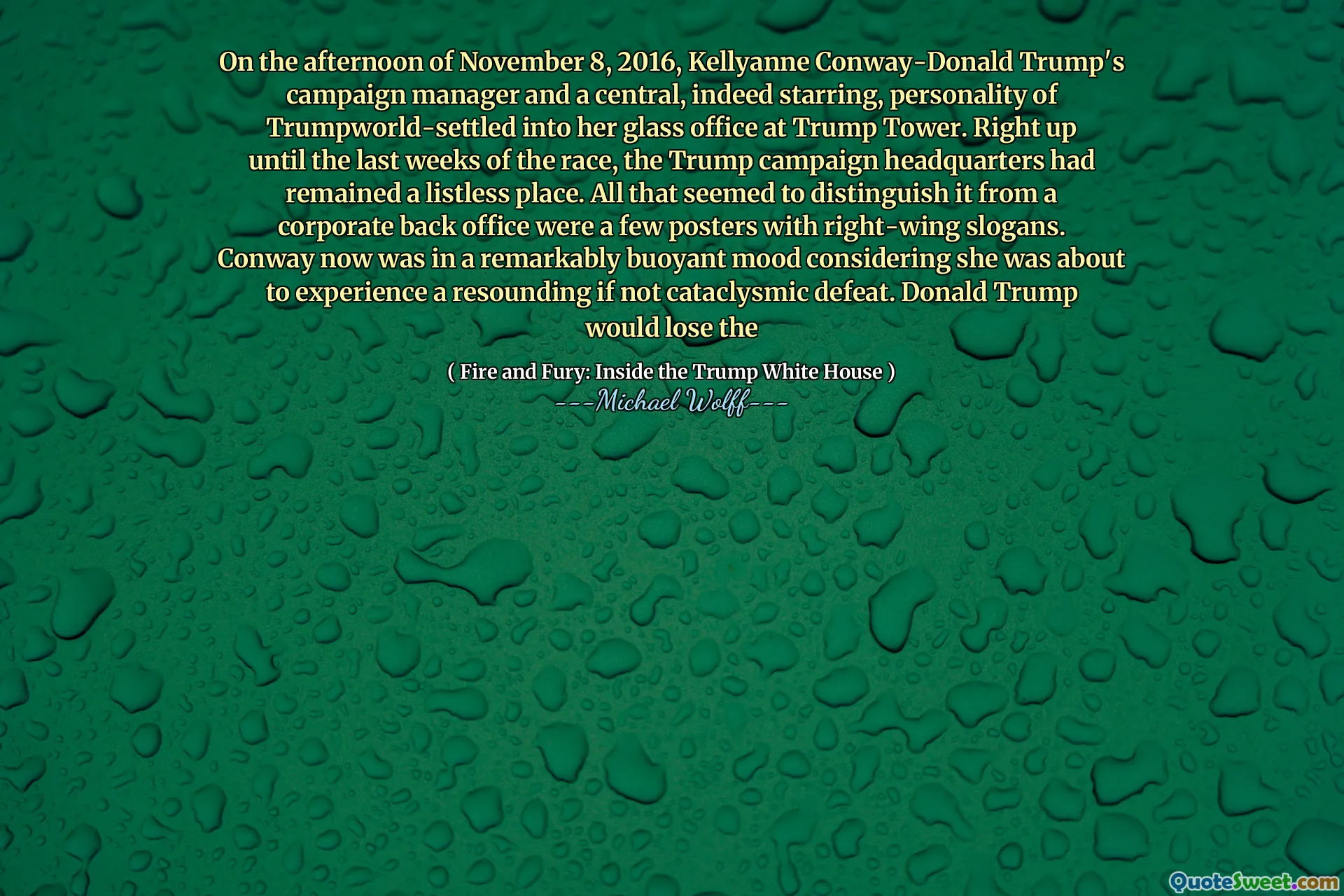
On the afternoon of November 8, 2016, Kellyanne Conway-Donald Trump's campaign manager and a central, indeed starring, personality of Trumpworld-settled into her glass office at Trump Tower. Right up until the last weeks of the race, the Trump campaign headquarters had remained a listless place. All that seemed to distinguish it from a corporate back office were a few posters with right-wing slogans. Conway now was in a remarkably buoyant mood considering she was about to experience a resounding if not cataclysmic defeat. Donald Trump would lose the
On November 8, 2016, Kellyanne Conway, Donald Trump's campaign manager, found herself in the Trump Tower office, a space that had been largely uninspired throughout the campaign. The atmosphere was defined by a few right-leaning slogans, lacking the energy one might expect from a political campaign on the brink of a major event. Despite this, Conway maintained an optimistic outlook as the election unfolded.
Even as the Trump campaign braced for what many anticipated would be a significant defeat, Conway's spirits remained high. The juxtaposition of her buoyant demeanor against the backdrop of potential loss speaks to the unpredictable nature of the campaign and the tumultuous environment within Trump’s inner circle, as detailed in Michael Wolff's "Fire and Fury: Inside the Trump White House."











